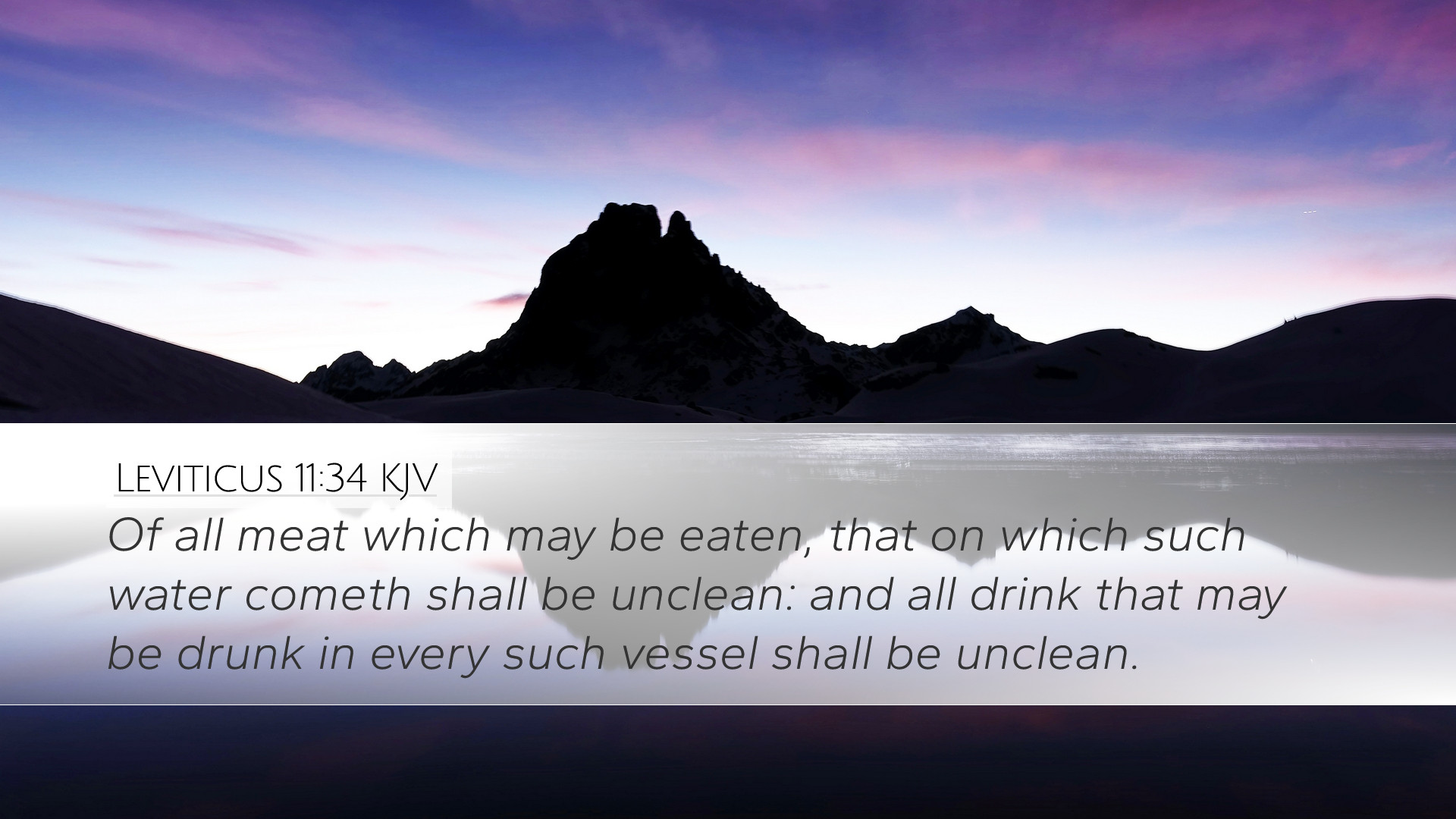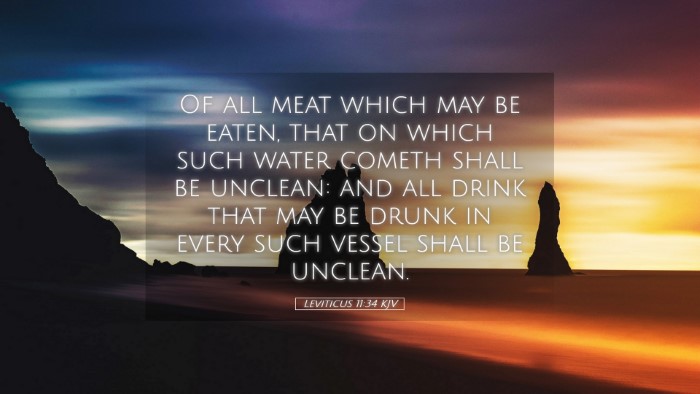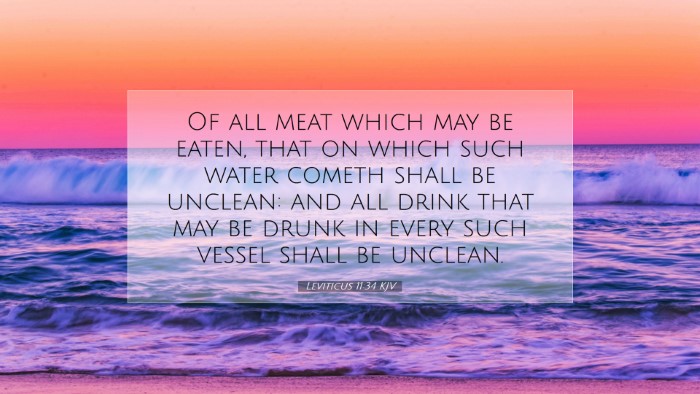Commentary on Leviticus 11:34
Verse Summary: Leviticus 11:34 states, "All food that may be eaten, that upon which such water cometh, shall be unclean: and all drink that may be drunk in every such vessel shall be unclean." This verse is part of the dietary laws provided to the Israelites, emphasizing purity and holiness in their daily lives.
General Insights
This verse illustrates the overarching theme of holiness in the Mosaic law, reflecting God's character and His desire for His people to be distinct from surrounding nations.
Exegesis and Theological Implications
This command regarding food and drink vessels emphasizes the importance of ritual purity. It suggests that not only the food itself but also the vessels used to prepare or store food can become unclean through contact with sources of impurity.
Matthew Henry's Insights
- Henry emphasizes that the laws of clean and unclean in food serve as a means to teach the Israelites to be conscious of their spiritual purity.
- He points out that the Israelites were to consider the potential contamination that could arise from what they consumed, extending to the vessels used.
- This is representative of the broader biblical principle that what enters a person can affect their spiritual state, thus urging vigilance over both physical and spiritual purity.
Albert Barnes' Contributions
- Barnes elaborates on the significance of "water" in this context, noting that water was often used in purification rituals and maintaining ceremonial cleanliness.
- He stresses that the distinction of clean and unclean food is not merely about dietary practices but serves as a divine ordinance to cultivate discernment among the people.
- His commentary insists that the concept of holiness involves a comprehensive understanding of purity that transcends mere physical consumption, affecting the entire lifestyle of the believer.
Adam Clarke's Analysis
- Clarke provides a detailed explanation of the phrase "upon which such water cometh," interpreting it as a warning against contamination that relates to the cleanliness of the vessels themselves.
- He connects this to the New Testament teachings on spiritual cleanliness, where Jesus emphasizes the importance of the heart over ritual practices.
- Furthermore, Clarke argues that this directive not only applies to the Israelites' physical food but also has an application to spiritual nourishment, encouraging believers to be mindful of their sources of spiritual teaching and influence.
Applications for Today's Believers
- Mindfulness in Choices: Just as the Israelites were instructed about the vessels of their food, modern believers are called to be discerning about what they consume spiritually, whether through teachings or media.
- Holiness in Everyday Life: There is an implication that holiness should encompass all aspects of life, including dietary choices, which can reflect a heart committed to God.
- Community and Accountability: The concept of communal dietary laws can encourage accountability within church communities regarding practices and teachings that may lead to spiritual impurity.
Conclusion
Leviticus 11:34 serves as a vital reminder of the relationship between physical purity and spiritual integrity. The insights from public domain commentaries reveal a rich tapestry of meaning behind these laws, urging believers to consider both their actions and the influences that affect their spiritual lives. Through these ancient laws, God communicates timeless truths about the necessity of maintaining a boundary between the sacred and the profane, emphasizing a lifestyle committed to holiness.


